Tag: Journalist
-
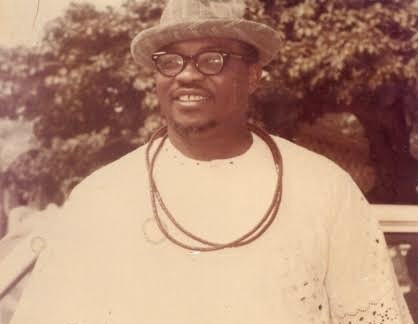
Memorial lecture: Demas Akpore the man who gave everything to humanity and asked for nothing in return – Abraham Ogbodo
Frontline journalist, Abraham Ogbodo has described the founder of Orogun Grammar School, a former principal of Government College and former Deputy Governor of Bendel State Chief Demand Akpore as a man who gave everything to humanity and asked for nothing in return.In his presentation in commemoration of Chief Demas Akpore 16th memorial lecture tagged: ‘BETWEEN ADVOCACY AND INTERVENTION: THE SACRIFICES OF CHIEF DEMAS AKPORE’ Ogbodo gave a vivid account of what Chief Akpore stood for building Orogun Grammar School from scratch from nothing.He gave a narrative that captured the entire life of the great Deltan when he explored available facts about him explaining that:“Talking about Chief Akpore is like opening an endless book or trying to crack a mystery. It is extremely difficult to understand his motivations. They went beyond altruism, philanthropy or even patriotism.” For want of a better description, I will say he was the man who gave everything to humanity and asked for nothing in return. The man is not strange to people of my generation and a few generations below me.“And except now that the teaching of history has become forbidden in school, every secondary school child should know a thing or two about Chief Demas Akpore who was the Deputy Governor of old Bendel State from 1979 to 1983.Read his full presentation below:“I wouldn’t know what my friend Dr. Otive Igbuzor saw in me to warrant my conscription into this privileged venture. Agreed, I attended Orogun Grammar School Orogun which Chief Demas Akpore founded in 1966 but I never enjoyed the privilege of close quarters encounter with him. He had left to become the principal of Government College Ughelli when I entered in 1975. I confess however that his shadows were still everywhere in the school and it didn’t look like he was completely absent. We felt him on campus and everywhere in the larger Orogun community.“And here I am today before this beautiful and elevated audience to speak about a man that I never met one on one but who has remained an unceasing source of inspiration to me and many others. The temptation in instances like this is to wax academic and plunge into the knowledge jungle to excavate well made descriptions and historical parallels to establish the subject-matter who, to me, is not a distant phenomenon. He is still large in the memory of this generation and will be even in the generation next.“I have therefore decided to stick to my simple content and what I personally witnessed about Chief Demas Akpore. In other words, the topic: BETWEEN ADVOCACY AND INTERVENTION: THE SACRIFICES OF DEMAS AKPORE is most practical. It is to say in a nutshell that instead of talking, Chief Akpore chose working. Or to dress it in semantic elegance, he walked his talk. Let me also add that I was not constrained in any way to move in this direction. Although not a point, I was granted the poetic licence by the Great Otive to voice in any direction and I have gladly settled for this.The summary of this venture is the deconstruction of the Akpore phenomenon to make it look as simple as ABC.“This is the 16th edition of this lecture series which means this initiative has been running for 15 unbroken years. The originators, Dr. Otive Igbuzor and his amiable wife, Ejiro, deserve our applause. The commitment and tenacity they have shown in driving this initiative year in, year out, is uncommon. I thank you both for your steadfastness.“I may have to do working definitions of the two keywords – advocacy and intervention. Advocacy is the persuasive communication to prepare the ground. It is the framing of the issues into achievable tasks. Intervention is specific performance to deal with the framed issues. For instance, if the issue is the high rate of illiteracy in society, the advocacy will centre on the need to build and equip schools to impart quality education. Beyond advocacy is intervention.“Each has its place. Intervention starts from where advocacy stops. But when advocacy is endless and perpetually holds back intervention from setting in, the situation yields to a completely different description and challenge. It becomes lamentation which is an open expression of helplessness as a result of either inability or unwillingness to combine available factors to turn around ugly conditions.*THE* *DILEMA* *AND* *AKPORE’S* *CHOICE* .“This is the crux of the matter. Simple as it may seem, the application of advocacy and intervention in proportionate measures makes all the difference in the game of life. It is actually what defines the progressiveness of the Western Hemisphere. This is how the average Caucasian approaches the game. After articulating the issues in a sustained advocacy, he rises up to the challenge of walking the talk. Take the COVID 19 pandemic for instance. The intensive advocacy that attended the outbreak only established the lethality of the pandemic and nothing more. Until vaccines were developed to contain the surge, merely talking about how infectious the disease was and its high mortality rate did not change the fatal statistics. People were dying in their thousands.“Impact is made when things are done. When things are discussed, hope is created. Hope is however finite within the context of what is in contemplation and when things remain perpetually at the level of discussion or hope without impact, there is a precipitation of anxiety that turns hope into despair and even fear. Consequently, confidence is destroyed as every description becomes empty marketing without products for sale.” What is more painful is that talking is the standard in our part of the world. Everybody seems to understand what should be done to create realities from dream but nobody follows up with the initiative to do what should be done. This is even more so in the political leadership where sagacity is measured by the degree of failures against promises.“Indeed the interpretation of public service in Nigeria is most weird. It is seen as the shortest route to a socio-economic breakthrough which is why people mortgage everything to prosecute election and roll out in massive celebration upon victory. They go for thanksgiving; not necessarily to thank God for providing them the opportunity to serve but to say their investments were not in vain after all. I note however that it has not always been so. It is the reason we talk of the good old days that created the Akpore phenomenon.“Talking about Chief Akpore is like opening an endless book or trying to crack a mystery. It is extremely difficult to understand his motivations. They went beyond altruism, philanthropy or even patriotism. For want of a better description, I will say he was the man who gave everything to humanity and asked for nothing in return. The man is not strange to people of my generation and a few generations below me. And except now that the teaching of history has become forbidden in school, every secondary school child should know a thing or two about Chief Demas Akpore who was the Deputy Governor of old Bendel State from 1979 to 1983.Notwithstanding and for the benefit of those who might not have followed up adequately on Chief Akpore, I beg to recap. He was born on August 4, 1928 by Mrs Etavwota Itedjere Akpore-Idise (Nee Agbonmiyeri) of Kokori Inland to Chief Itedjere Akpore-Idise of Orogun town in present day Ughelli North Local Government Area of Delta State. He had his primary education at CMS Primary School Warri between 1937 and 1944. He was at Government College Ughelli between 1945 and 1950.In 1951, he was admitted to the University College Ibadan now University of Ibadan and left in 1956 with a bachelor’s degree in Classics.At graduation in 1956, Chief Akpore was only eight years behind the first ever graduate from Urhobo land, Chief Gabriel Macneil Ejaife who returned from Durham in UK in 1948 with a post-graduate diploma in education after a first degree at Fourah Bay College Sierra Leone. It would be absolutely safe therefore to say that Chief Demas Akpore ranked among the first 10 university graduates in Urhobo land. He followed up with a master’s degree from the University of British Columbia in 1958. Let me now ask: How many were they then; near and far, that could equate the description of M.A Classics?This brings me straight to the main point. Here was a man who with his master’s degree in 1958 could literally own the world and be anywhere he wanted to be. He could join UAC, John Holt, SCOA, CFAO, etc and become a Chief Executive Officer in almost instantly but he didn’t. He could join the civil service and in the very next promotion become permanent secretary with all the attendant privileges – expansive living quarters, big car, retinue of domestic servants, all-expenses paid regular over sea trips, power/influence peddling and endless patronage – but he did not. In fact, with a background in Latin, the United Nations or the Commonwealth would have made him an automatic under secretary-general in readiness to becoming the ultimate – Secretary-general. But that was not on his mind.Rather, what was on his mind was to return to develop his Orogun community. And because he did that, generations after him, including mine, had the privilege of an enablement in this hostile planet. I want us to take a breath, cast our minds back and get the perspective right.In 1966 when Chief Demas Akpore founded Orogun Grammar, the number of secondary schools in the entire Delta Province was perhaps far less than the number we have today in Ughelli North local government area alone. I can add that many who couldn’t make it beyond primary school way back then never planned to fail. Failure was imposed, a kind of force majeure that made victims completely helpless.Yearly secondary school enrolments far outstripped the carrying capacities of the available schools and it became a Darwinian game where the not-too strong never enjoyed any form of protection or official affirmation.This was also the period when knowing a secondary school principal was like knowing the president of a country. The secondary school principal was in fact more important than the president whose schedule of duty did not include putting a child in secondary school.The principals enjoyed a small window of discretion which made them extraordinary in the scheme. More or less, they exercised power of life and death in the matter of access to secondary education.One man saw all of these social constraints and decided to act. Let me also say that, it would have been more convenient for Chief Akpore to lay back and join the usual clarion calls on government to build more schools to address the situation. Armed with a Master’s Degree in Classics, he could invent all the compelling communication, written and spoken to place the responsibility entirely on government. He did not. Instead, he relocated to Orogun of 1966 to found a secondary school to address the big issue of the day.Even now, I still find it difficult to understand the spirit of altruism that fired Chief Akpore to forgo all the juicy alternatives and stay back in Orogun to build and nurture a secondary school from scratch to fruition. Orogun town as it is today, that is 57 years after the advent of Akpore and with all the gains in time and space (development), not too many of us seated here right now would be ready to live in it and work conscientiously for posterity the way Chief Akpore did 57 years ago.Rather, we crave to settle in Lagos, Abuja, Port Harcourt, Benin, Warri, Sapele, Asaba and such other places that guarantee much more than a rural and peasant economy that Orogun was and still largely is.Kindly permit the emphasis. Orogun of 1966 did not have public electricity, portable water, telephone and good access road. While persons in his class and even much lower bestrode private and public sectors’ bureaucracies as permanent secretaries, directors and managers, Chief Akpore was in Orogun enduring mosquito bites and other environmental hazards to give opportunity to young persons of different orientations and inclinations.Let me remind us once more that we are talking of a man who had a bachelor’s and master’s degrees in Classics in 1956 and 1958 respectively. Who else could be better educated within the national space of that time outside perhaps the Great Dr. Nnamdi Azikiwe? But even as the ultimate Big Boss, Chief Akpore did not enjoy any special privileges. In Orogun Grammar School, he was founder, principal and a classroom teacher.Outside money, he had invested massively his intellectual resources into his mission to give the new school an adoring uniqueness. Latin was part of the subject bouquet. We may not know what that meant because the language is today considered dead. But know this moment that at some point in the history of western education, this English language that is so entrenched today, was vernacular, exactly the same way that the British colonialists described our local languages when they came. The actual language of scholarship was Latin and that was the language Chief Akpore gave the early boys and girls of Orogun Grammar free of charge!Just how many of the secondary schools at that time offered Latin to certificate level? There is something else I want to reveal about Latin. The English language derived largely from Latin which also formed the basis of English Grammar. Over all, a degree holder in Latin is a better grammarian and speaker of English than a degree holder in English. I can see why, with Chief Akpore, it had to be Orogun GRAMMAR School and not Orogun Secondary School or Orogun College. Going forward, those that didn’t attend a grammar school should please note the huge difference. In addition to all the known and unknown qualities of Chief Akpore, he was English grammar personified.*DEVELOPMENT* *IS* *DELIBERATE* , *INTENTIONAL* *AND* *NOT* *HAPHAZARD*The point must be further underscored that nothing will be achieved if nothing is done. Even with the most grace, prosperity cannot be gratuitous. It is a consequence of positively coordinated efforts. Therefore, those who wish to get something from nothing, are themselves, enemies of society. As lawyers would say: Nemo dat quod no habet. You cannot put something on nothing. The only economy that is given is the natural economy. Even so, it has to be preserved and protected by deliberate efforts.Every other economy is a derivative of the natural economy through a combination of the given factors such as natural resources and the human imagination. This means that what we call economic activities that create wealth, are triggered by decisions of men and women.Take for instance the English Premiership and any other major football league in the world. The soccer leagues are multi-billion (and perhaps in the trillion dollar threshold) because somebody somewhere related passion with money making and decided to develop and market the sport into what it is today.Outside football, sports generally, is a big and ever growing economy. Sporting activities have no other utility outside excitement. They have only been repackaged by creative minds to make the arising excitement exclusive and accessible to only those that can pay for it. It is called value addition in production science. Same can be said of entertainment which, in traditional African societies, is served free in village squares during festivals and special occasions. For instance, how much of an economy has been created around the Uwheru traditional wrestling competitions? Yet I can say with near precision that the fast selling wrestling associations in the United States and elsewhere including the Japanese sumo wrestlers might have begun like the Uwheru wrestling festival. Somebody intervened to deliberately harness the energies, exuberance and if you like, tendencies towards violence of youngsters, into regulated combats that can be sold as economic products.The point I am making is that development is like an object. Physics tells us that all objects are in a perpetual state of rest or inertia and shall forever remain so unless acted upon by an external force. That external force is the human factor. The initiative to offset the inertia and set things in motion for good purpose. Orogun Grammar School wouldn’t have germinated on its own if the factor of Akpore was lacking. Much as the community desired a secondary school back then, it would have remained a perpetual desire if Chief Demas Akpore did not act. Desires on their own strength do not translate to substance or measurable goals.Practical problems don’t get resolved when we merely speak to them or even pray about them. Not even the Pentecostal radical prayers of binding and casting can resolve things in a vacuum. It is not to say there are no miracles but the objective realities are different. So that it doesn’t get too diffused, I will situate the analogies. We talk today of youth unemployment and the resultant vices of restiveness, drug abusive and violent crime among youngsters.We can start this moment to organise symposia, conferences, seminars, prayer sessions and other talk shows till another one hundred years. All of these huge efforts shall only define the issues for intervention and if governments or good spirited individuals do not take practical steps as in building industries or creating an investment environment through good policies, the issues will not dissolve.Instead, they will fester and grow from bad to worse. Job opportunities do not exist in a vacuum. Neither are they like a game of chance that runs perpetually on probabilities. If you do well to create an economy through industrialisation and investments in social and physical infrastructure, the jobs will flow as direct consequences of these efforts. Just how many of you have visited the Orhomuru – Ugono axis lately?I should not fail to mention that development is composite. It means all the elements must be present in proportionate measures for the outcome to remain sustainable. It also means that physical development cannot be driven in isolation or outside of human development. It reminds me of the motto of the Man O War Movement. It reads: Build The Man, Build The Community. And note the sequence too. It is not build the community before building the man because a built man has near infinite capacity to build the community.On the other hand, situating an undeveloped man in a developed community is like co-habiting the beast with beauty. The arising incongruity will lead to a cancellation of values and take society backwards. Chief Demas Akpore chose to build the man. He refused even to build personal fortune with all the opportunities at his disposal to do so. He concentrated every time, talent and treasure he had in building the man. And the men and women he had built decades ago, have solidly come of age and they have been building great communities.*CHIEF* *AKPORE* *UNDERSTOOD* *THE* *PURPOSE* *OF* *GOD*From personal observation, I have come to understand that at the core of human problems is our refusal to understand the purpose of God in our lives. In absolute ignorance, we tend to think that life is all about ourselves and nothing about others. As a consequence, we seek to own the world instead of seeking to contribute to the world. In this context, I feel bold to proclaim that Chief Demas Akpore was one man that perfectly understood the purpose of God. He lived almost entirely for others.In giving the subject of economics an existential flavour, Lord John Maynard Keynes had warned that in the very long run, we shall all be dead. Death, as Shakespeare notes, is a necessary end that will come when it will come irrespective of what we think, what we are and where we are. And when death does come, what really outlives us is not our wealth. It is our name. Chief Akpore died on December 28, 1993. He was only 65 years. If we are here today to search for the wealth, in terms of cash and buildings that Chief Akpore left behind, I am afraid, we may not find much.Yet in death, this human icon has remained green and kept rising in value like the stocks of a well managed blue chip company. This immortality is not attributable to the wealth that this modest chief left behind. He bequeathed to humanity something much more and which has in turn given him an indestructible name. And so, I can go ahead to authoritatively proclaim to you that every man and woman on earth has two prized possessions; the soul and the name. At death, one is taken along and the other is left behind. Both are immortal. Just as the soul does not die, a name lives on and it can be remembered for either good or bad.Both are composite and also pair at the same moral degree. That is, a good soul nourishes a good name and a bad soul nourishes a bad name. In situating Chief Akpore in this context, I enjoin us to do exactly what applies in all empirical inquisitions. We shall move from the known to the unknown. The known here is Chief Akpore’s name and there is a complete consensus on this. The name is good. It is rich in morality and service to mankind. If this is so, it follows that Chief Akpore departed, as the cliché goes, this sinful world, with a good soul and he is this moment enjoying eternal peace in heaven.Even so, the responsibility of fair judgment in this matter does not lie entirely on humans. We must accept that the ranking is beyond human manipulation. You may steal, maim and kill innocent people to access resources to build schools, hospitals and churches to create an impression of goodness but in the end your soul would not be made to rise an inch higher from the doldrums of immorality by such seemingly acts of goodness. Chief Akpore lived a most worthy life. He was impeccably transparent. He was an embodiment of good morality. He did not give so much back to his community out of the abundance of ill-gotten wealth; he did out of love. With him, giving was a duty and it was like a dereliction of duty if he didn’t give so much back.*CHIEF* *AKPORE* : *A* *STUDY* *IN* *RESILIENCE*From what I know, Chief Akpore was not under any compulsion to be so nice to the Orogun community. His education was not a communal collaboration and therefore by that bond obligated to beneficiate the community in a pay-back arrangement. From scratch to summit, his education was paid for by his father, Chief Itedjere Akpore Idise, who, by the standards of that period was rich and successful.Jomo, Chief Akpore’s son told the story of how his father literally moved against powers and principalities to establish Orogun Grammar School for the benefit of all of us. Even the authorities of the then Midwest State were unwilling to subscribe to the idea of a secondary school in Orogun. Once, the Chief was told that Orogun town was not on the political or development map of the state when he requested government assistance to lay culvert on the access road between the town and the school to stem the perennial flood plaguing the road so that students could pass through it to school.Undeterred, Chief Akpore had secured a bank loan to lay the culvert to stabilize the road and attract students to Orogun Grammar School to meet the enrolment threshold for school’s survival. He shot beyond the shores of Nigeria in search of needed oxygen for Orogun Grammar School. He wrote personal letters to President Lyndon Johnson of the United States and Prime Minister Harold Wilson of Britain for human capital support.In response, two American teachers, Mr. Paul Ingelman and Miss Anne Dillingham and a Briton, Miss Josephine Carmen Durham came to Orogun Grammar School to beef up the teaching staff.Chief Akpore interpreted his life as a call to selfless service and an opportunity to do good. In all the things he did, he never sought personal glory or benefits. Even in the school he built, he had remained farfetched in the overall spectacle.People only heard that he founded the school but outside that, there was nothing in the characteristic branding and labelling of the administrative structures that connected him to the school.In good conscience, he was perfectly entitled to name the school after himself but he chose to name it after the community – OROGUN. After the forceful take-over of schools in 1973, government had also granted the right for proprietors to have their schools named after them but Chief Akpore would not have any of that.In fact, it was recorded that he declined being compensated arguing that the school was not a business venture but a gift to his community and would not want to profit by it.THE MORAL DIMENSIONChief Akpore was defined by two vocations; education and politics. And in either, he set parameters that have remained reference points in good conduct. Schooled in the best traditions, it goes without saying that while alive, Chief Akpore would have read so many books. But it was also obvious he didn’t read from that which describes politics as a dirty game in which only dirty player can survive well. From his undergraduate days at the university of Ibadan as students leader through his stint in the NCNC (National Council of Nigeria and the Cameroons later changed to National Convention of Nigerian Citizens) under the Great Zik of Africa to his election as deputy governor to Professor Ambrose Alli in the old Bendel State under the platform of the defunct Unity Party of Nigeria (UPN) in 1979, the Chief maintained a character that made politics look most noble.Akpore’s brand of politics was far from what it is now. It wasn’t a call to chop and quench but to work and sometimes on empty stomach and if need be, die for the people. And Chief Akpore did work and die for his people. Not one to compromise for any reason, he somehow became anachronistic in a political scheme that sought things other than service to the people. He resigned as deputy governor of the old Delta State on November 3, 1982. He was to learn in a most brutal way that irrespective of the views he held dear, politics in this part of the world was and is still indeed, a dirty game. For refusing to continue against his conscience, he was marked for liquidation. The attack came few months later and it was meant to be fatal. After they had finished, his attackers left him to die.Death however delayed or came slowly. The injuries and complications from that attack endured and the once bubbling Chief started going down fast. About 10 years later, on December 28, 1993, Demas Onoliobakpovba Akpore died, aged 65 years.*CONCLUSION*I am just among the team of the blind men that went to unravel the elephant. I can only describe the huge Demas Akpore from my narrow perspective and that is what I have done in this presentation. I am the first to admit that even with this long essay, I have but only scratched Chief Akpore as a subject matter. For instance, I am still not able to say precisely the philosophical, social and spiritual motivations that combined to give Chief Demas Akpore those angelic attributes here on planet earth. But I must end now!Thank you very much for listening. -
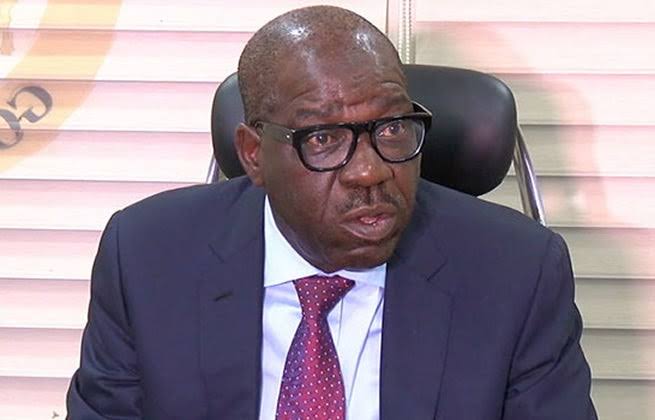
Obaseki rejigs his media unit, appoints Okungbowa as CPS
Governor Godwin Obaseki has appointed a veteran journalist, Mr Andrew Okungbowa, as his Chief Press Secretary, CPS.
The Secretary to the State Government, Osarodion Ogie, conveyed Governor Obaseki’s approval of Okungbowa’s appointment in a statement issued on Tuesday.
Mr Okungbowa, until his appointment, had worked as a media consultant and Editor with Daily Telegraph.
Okungbowa is an alumnus of the University of Benin and UNILAG, where he obtained first degree in Theatre Arts and master degree in English, respectively.
Okungbowa was President of Association of Nigeria Writers and Journalists of Tourism. As believed, he will be bringing his vast experience in the field of journalism in his new task of revamping the public image of the Obaseki-led government.
-
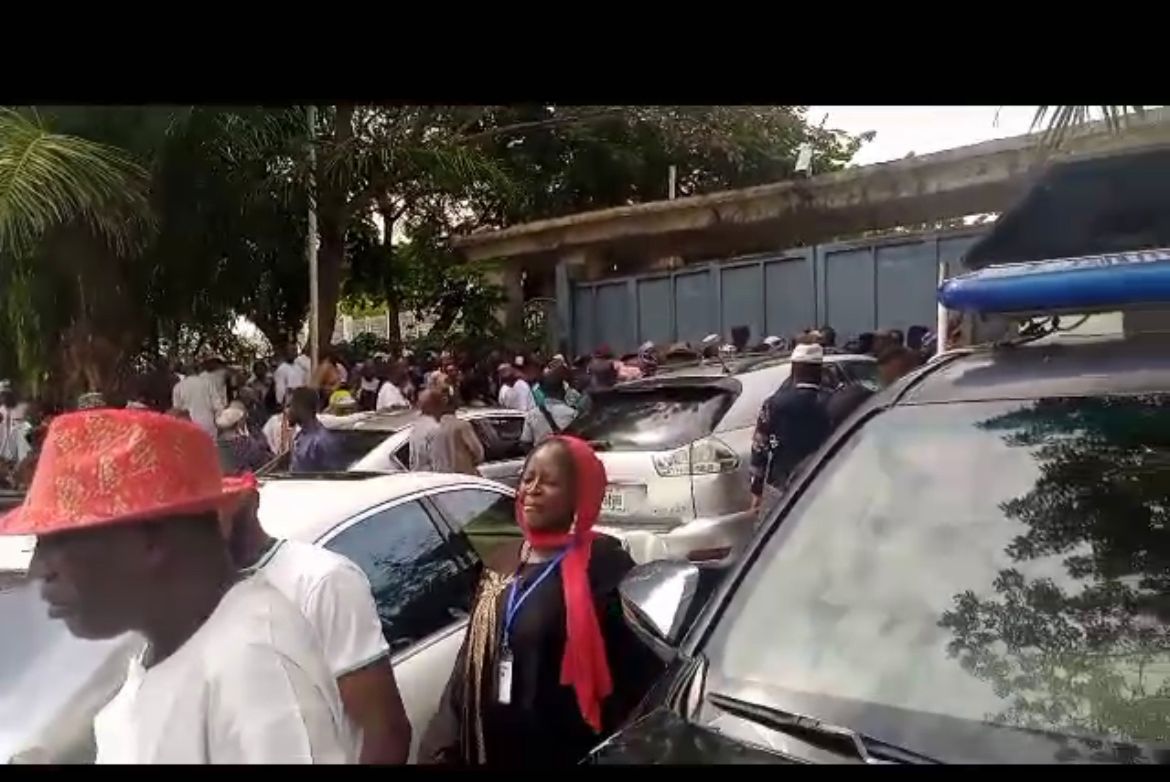
VIDEO: Accredited journalists, visitors barred from entering NASS
Several accredited journalists and visitors on Tuesday were denied entry into NASS to cover the ongoing leadership election.
The main gate to the complex was sealed by security operatives and the SGF gate was thrown open till 8 am.
Immediately it was 8 am, the SGF gate too was locked up by the operatives but allowed only lawmakers-elect entry.
In a video captured by TheNewsGuru.com stranded journalists could not access the SGF gate.
Watch:
View this post on Instagram -
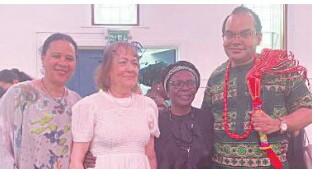
Photos: Foremost Nigerian journalist, Peter Pan Enahoro finally buried in London
The remains of foremost journalist, author and national icon, Mr. Peter Pan Enahoro was buried in London on Wednesday.
He died in the United Kingdom (UK) on April 24 this year at 88.
Enahoro became editor of Nigeria’s oldest newspaper, the Daily Times, at the age of 23 and proceeded to carve a niche for himself as a satirist, standing on the side of the people.
Widespread eulogies trailed his demise and tributes to a fine gentleman of the pen profession.Publisher of Daily Times of Nigeria (DTN), Mr. Fidelis Anosike, said today’s interment would not end the life and times of Enahoro, but elevate his legend globally.
DTN, he said, has embarked on activities to honour the late icon. DTN, which Enahoro led, will be 100 in three years’ time.
Anosike said: “Daily Times of Nigeria is proud of the landmarks of the legend, Peter Enahoro. Indeed, one can rightly say his engagements were a labour of love for the development of Nigeria and the vibrant press in the country today owed much of its credit to Peter Enahoro’s bold and courageous skill with the pen to hold those in power accountable to the people.”
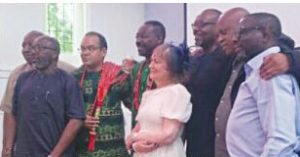
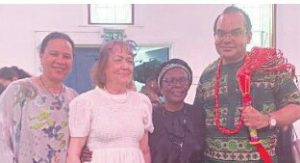
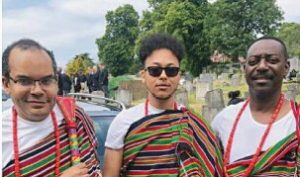
-
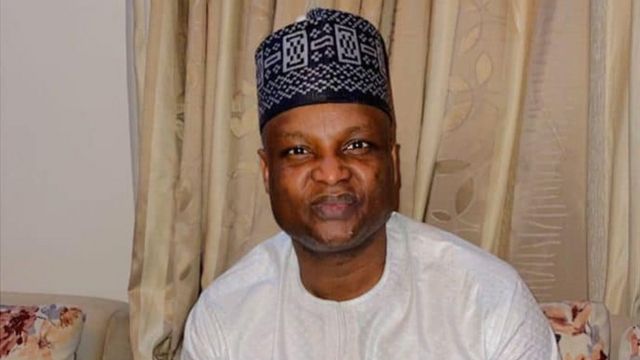
Alleged drug deal: Court bars lawyers, journalists from covering Abba Kyari’s trial
Journalists covering the ongoing trial of the suspended DCP Abba Kyari and others were, on Tuesday, restrained from coming into Court 10 of the Federal High Court, Abuja, venue of the proceeding.
Justice Emeka Nwite gave the order following an application to the effect by Mr. Sunday Joseph, counsel for the National Drug Law Enforcement Agency (NDLEA).
Joseph, a director of Legal and Prosecution Department of the NDLEA, had applied for the protection of the next witness listed to give evidence in the trial.
The lawyer prayed the court that other lawyers, litigants, visitors, including journalists, who were in the court should not be allowed to be in the courtroom while the hearing lasted.
Justice Nwite then stood down the matter to allow non-parties in the anti-narcotic suit against the suspended police officers move out.
However, when the judge came in for the matter, a lawyer, Emmanuel Oluwabiyi, whose case was on number 11 on the cause list, told Nwite that he was in the court for another matter.
Oluwabiyi said he observed that before the judge rose, counsel for the NDLEA made an application.
“I understand that it was directed that everybody in the courtroom should step out because of the instant matter. The bar is also meant to be vacated.
“The feedback I am getting is that when this matter is going to be made, no lawyer should be in
“I am embarrassed by the application my lord,” he said.
Justice Nwite then pleaded with lawyers who were not in the Kyari’s matter to bear with the court in the interim.
He said their matters too would be heard as soon as hearing was over.
“In the mean time sir, I want to know when to come back my lord,” Oluwabiyi asked.
“You can hang around. We are not going to take the matter through out the whole day. Please bear with,” the judge responded.
Another lawyer, Mr Ramiah Imhanaede, also aligned with Oluwabiyi’s submission.
However, when the newsmen asked the NDLEA’s lawyer on reason for the application, he said it was to give protection to the witnesses, who are intelligent officers, in the matter.
When asked about his reaction to the opinions of other lawyers in court, Joseph said “there is a doctrine of state privilege in the interest of national security.”
He said it had been observed that members of the Inspector-General (I-G) of Police Intelligence Response Team (IRT) who were loyal to Mr Kyari, were still coming to court
“And you don’t know who is who; so, it is for the witness’ protection
“We are now going into the nitty gritty of the matter and there have been allegations that we are just witch-hunting them,” he alleged.
Joseph said though the agency had been calling witnesses, he said the present witnesses cannot be exposed to the public.
The hearing is still ongoing as at the time of filing the report
Justuce Nwite had, on March 22, dismissed an application filed by Kyari samd others eeking an order dismissing the NDLEA’s charge against them.
Kyari and three other co-defendants in the suit bordering on drug offence had filed the application.
The applicants are Kyari, ACP Sunday Ubia, Insp Simon Agirigba and Insp John Nuhu.
They had prayed the court to quash the criminal charge against them , in fresh motions on notice filed by their lawyers on the grounds that the suit was incompetent.
They urged the court to stop their trial because they had not been subjected to the internal disciplinary action of the Nigeria Police Council (NPC) and the Police Service Commission (PSC), as provided by the constitution.
They said that the failure of the complainant (NDLEA) to await the disciplinary action against them rendered the charge incompetent and deprived the court of jurisdiction to entertain the charge.
-
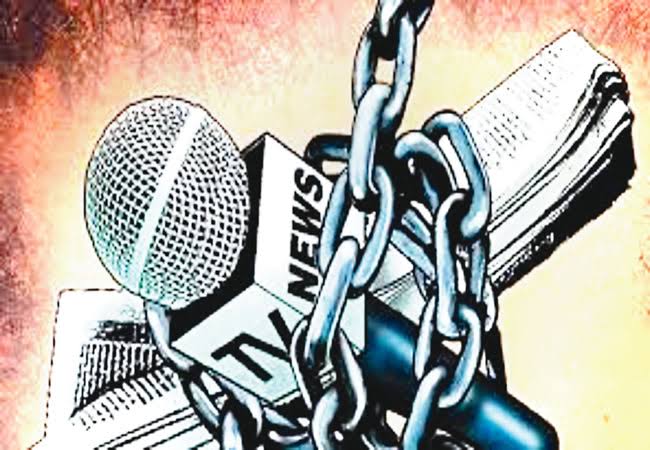
World Press Freedom Day: Democratic processes in Nigeria are in danger of being undermined-NUJ President
President of Nigerian Union of Journalists, NUJ, Chris Isiguzo has raised alarm that democratic processes in Nigeria, are in danger of being undermined by unscrupulous politicians and the prevalence of false, hateful and divisive information that create fear, ignorance and uncertainty within the public at large.
TheNewsGuru.com, (TNG) reports this was contained in a release signed by Shuaibu Usman Leman National Secretary of NUJ in commemoration of WPFD.
Titled: ‘That Freedom Of Expression May Thrive’, the umbrella of Nigerian journalists stated that:
“On the occasion of the World Press Freedom Day 2023 (WPFD) with the theme: “Shaping a Future of Rights: Freedom of expression as a driver for all other human rights”, signifying the enabling element of freedom of expression to enjoy and protect all other human rights, the NUJ President, Chris Isiguzo, MFR has raised alarm that democratic processes in Nigeria, are in danger of being undermined by unscrupulous politicians and the prevalence of false, hateful and divisive information that create fear, ignorance and uncertainty within the public at large.
“Comrade Chris Isiguzo who said this at the NUJ National Secretariat Abuja while observing the WPFD 2023 notes that while the Constitutional right of freedom of speech and association remains inviolable, political actors should tone down their utterances in whatever form , by making comments that are issues-based and within the limits of the rules of the game. Governance, he argues is about people and thus the guiding principle should be self- preservation as politics is for the living and not for the dead.
“He charges Journalists as the watchdog of the society and the “fourth estate of the realm” to strive more to stem the trend, encourage freedom of speech as guaranteed by the Nigerian Constitution and uphold the fundamental objectives contained in chapter II of the Constitution. They should always strive to uphold the responsibility and accountability of the Government to the people, he stresses.
The NUJ President laments that the global information crisis in which journalism is being overwhelmed by the narrow self-interests of political and corporate centres of power is being felt strongly in Nigeria where hate-speech, fake news and abusive exploitation of information technology are endangering pluralism and democracy, and that this crisis of propaganda, requires a practical and comprehensive response which puts ethics, self-regulation and good governance at the heart of journalism in the Country.
“The future of democratic pluralism and the defence of all human rights are dependent on the right of all citizens to receive reliable and useful information. We believe that ethical journalism is the key provider of the information democracy needs to survive”, Comrade Isiguzo contends while condemning all forms of violence against journalists in the Country and attempts to bribe and corrupt the process of journalism and to manipulate media for propaganda.
“We once again call on all journalists, in spite of these threats, to redouble their efforts and live up to the values and standards of the profession. We also appeal to all journalists and media owners to build professional solidarity and to work together to promote ethics and good governance to confront the looming dangers”, he asserts.
He reiterates the provisions of the Nigerian Constitution which emphasises that every person shall be entitled to freedom of expression including freedom to hold opinions and to receive and impart ideas and information without interference, a provision which is also amplified by Amnesty International, that, “Your voice matters. You have the right to say what you think, share information and demand a better world. You also have the right to agree or disagree with those in power, and to express these opinions in peaceful protests.
” Exercising these rights – without fear or unlawful interference – is central to living in an open and fair society; one in which people can access justice and enjoy their human rights”. The Federal Government of Nigeria and all State Governments must be seen to be upholding and encouraging these, the President urges.
The President who frowns at the continued threats to Journalists and the Journalism profession, says that such attacks, constitute a threat to Freedom of the Press and Freedom of Expression and are a constant reminder that new threats for the media continue to manifest in various forms and these feed into the sense of impunity and encourage further violence against the media.
While regretting that such acts of impunity are being ignored by Government officials who do not want any criticism of the Government they serve under, Comrade Isiguzo states that the Freedom of Expression cannot be tempered with if Nigeria is to make any meaningful progress as a democratic nation.
-
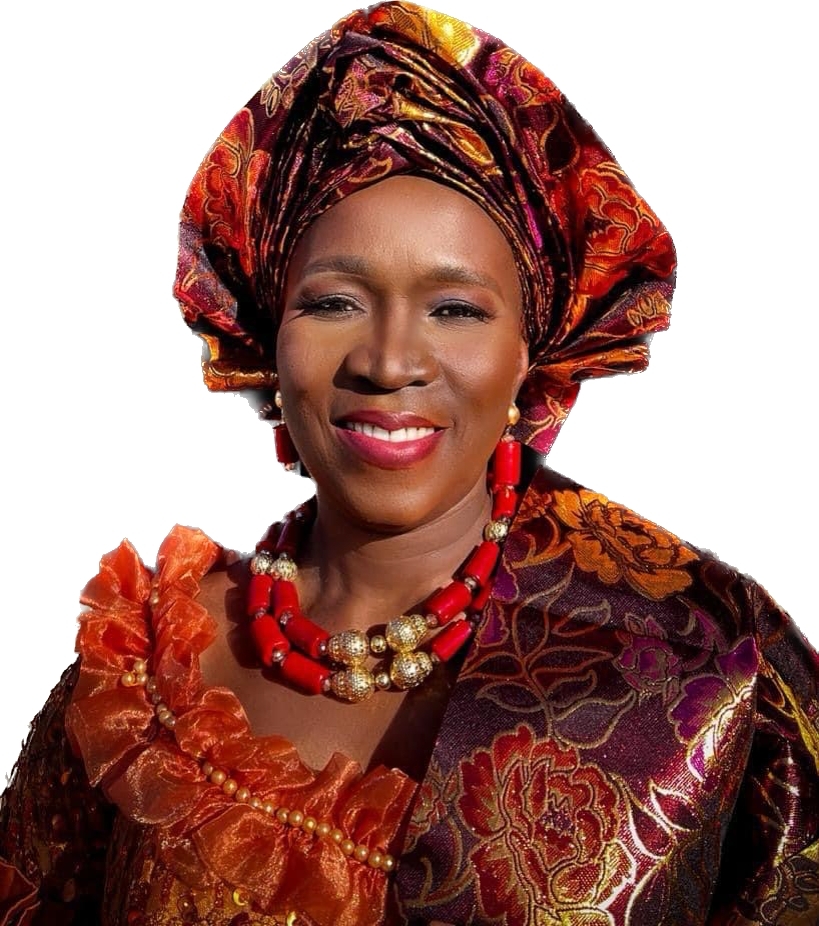
Nigerian journalist, Agbonsuremi pens down more than 3 decades of his love life in a tribute to his late wife, Mercy+photos
In a tribute simply entitled: ‘Mercy, My Friend, My Devoted Companion.Adieu! The former Political Desk Head DAAR Communication Group, Augustine Agbonsuremi bared it all from Genesis to Revelation in a touchy piece.
Read him:
I was privileged that I had her as my wife for 32 years and for an additional five years earlier as a schoolmate and friend in courtship.
Our friendship and companionship were designed like no other. Ours was carved in rare blocks from whichever angle you look at it.
We met in the course of an unusual circumstance and built up from scratch.
On our wedding day, we set out on a bus ride to the marriage registry.We had no new dresses.
No Photographer.
No guests.
No wedding reception. We could not afford them all.We had faith in God.
We were full of determination.
The defunct Ogwashi-Uku Polytechnic gave me admission in 1983 to Study Mass Communications.The same year, she gained admission into Ozoro Polytechnic to study Banking and Finance.
It is not difficult to conclude that unless something extraordinary happened, our paths could never have crossed.Midway into our programs, both schools were shut down by the General Jeremiah Useni military administration in the then Bendel State.
The forced closure of the two tertiary institutions brought excruciating anxieties for students of both institutions who had their hope hanged in the balance.
Just right inside this anxiety and uncertainty was the story of our lives, our future, and our family.
Following the shutdown of the two polytechnics, Students of both schools were asked to report to Auchi Polytechnic for absorption.But Auchi Polytechnic, for administrative and academic reasons, could not accommodate all the students.
About half of the students were provided space in Benin City at the Institute for Continuing Education (ICE) to study for the Auchi Polytechnic Diploma.All the affected students of both
Ozoro and Ogwashi-Uku Polytechnics, including Mercy and I, resumed classes at ICE premises in Benin.
The closure of the two schools had a silver lining for us.
So, there was this beautiful girl, ebony black and well-shaped, Mercy Ogie, one of the students studying Banking and Finance from Ozoro Polytechnic.We both entered this school arrangement without knowing that this was the most significant event to influence our lives. And it was carefully embedded by providence, destiny and fate inside this seemingly intractable crisis of the closure of our different institutions.
About three months before concluding the program at ICE, I was at the departmental block when I saw this pretty girl again.
Recently my eyes were on her, but we had never spoken to each other, except during our passive meetings at students’ brief meetings, where, as one of the students’ leaders, I explained the efforts to be sure we completed our program in one piece.
It was always like a general meeting where those of us in the forefront addressed the students. So I can say, and she confirmed that she knew me from those public meetings.
This morning I saw her again, smart, beautiful and exuding all the seriousness you can possibly infer from a physical demeanour.
My heart pounded, and my head went turning again. I couldn’t resist it this time.
And was it a voice I heard? It was loud inside of me, and it was clear. “That’s your wife.”“Wife ke?”, (wife?), I queried, but without thinking, I ran after her to her class, Banking and Finance, about three class halls away from the Mass Comm hall.
I stood at the door and beckoned on her to be excused outside to the car park, a few steps away.
She obliged.The message was straightforward.
It was respectfully delivered.
No introductions.
Just salutations and I dropped my message:
“I don’t expect you to respond to what I want to tell you. I am not looking for a girlfriend. I am convinced that you will be my wife.“
Classical.
She didn’t disappoint.
“Is that all” she responded.
I replied, “Yes.”
“Can I go now?” she asked, and I responded, “Yes,” again.
I was not expecting anything more.
The encounter was not more than 3 minutes.
I watched her step off and away from my sight.
She didn’t look back, against my expectations, that she would, at least, look back. .I was greatly relieved, and I didn’t see her again until three weeks later when I went to her class to invite her for a drink at the kiosk.
That was when we introduced ourselves, and we got to say a little about our backgrounds.
“I am Mercy,” she told me.
She told me she had been trying to process the message I had dropped with her. According to her, she couldn’t understand. I told her that I hardly understood too.She wasn’t considering marriage, as the current academic challenge was big enough.
I wasn’t thinking of marriage either.
We became friends, got along, and we soon graduated.I moved to Lagos to join The Guardian on an internship.
She got a job with the defunct New Nigeria Bank, and she picked the offer to resume in the bank’s branch in Lagos.
Five years later, we got married at the City Hall Registry, Lagos.
The entire marriage ceremony at City Hall couldn’t have lasted more than 30 minutes.We were not quite ready financially, but we avoided unnecessary expenses.
We were packed with determination.
We had a budget of N14,000, about my annual salary on The Guardian Newspapers as a Staff Reporter, for both the traditional ceremonies and the registry.
A week earlier, on May 11, 1991, we were in Benin City for the traditional ceremonies.It was attended by only our close friends and family members.
She had confided in her parents that our budget was nothing to write home about. .
So in one of those pre-wedding visits, my father-in-law, Pa Gabriel Ogie, of blessed memory, a school Principal, took me into the inner recess of the house for a discussion.“I know you don’t have all the means for an elaborate marriage ceremony. Just bring in your parents and immediate family members. I will bless you and my daughter in marriage. You don’t need to bother yourself with anything”, he said.
We had a wonderful ceremony: my parents, siblings and a few cousins. A few friends – David Ogah and Edetean Ojo, both of whom were my colleagues at The Guardian Newspapers, Frank Alabi of blessed memory from Daily Times, Gloria Oyerior, my course mate and a couple of my other friends and Mercy’s colleagues from New Nigeria Bank – it was a small group of family and close friends.From the lean budget, we decided we could only buy new clothes for the traditional ceremony.
She didn’t insist on “standards.”
We couldn’t afford to buy any new dresses for the ceremony at the registry.
In the office, I told Edetean Ojo and David Ogah that we have decided to have them as witnesses to our marriage.
They obliged us.On Saturday, May 18, 1991, very early morning, my Mercy and I headed to the bus stop.
We had no budget for a taxi.
Edetean and David found their way to City Hall at 8 am.None of us had personal cars.
We took our first bus from Iyana-Ipaja to the Ikeja bus stop.From Ikeja, we took another bus heading to CMS.
But something happened.
In Maryland, just before the bus stop, there was a slight traffic build-up on both sides of the road.I sat near the window in the yellow-painted small FEDECO bus on the side of the inner lane, and right from the other side of the road, I heard a call.
I saw a senior colleague in The Guardian newsroom, Mr. Emeka Okoroayanwu. He sighted me on the bus.He wasn’t aware of our marriage ceremony. He was one of the three reporters proudly owning a car, a Peugeot 504, in the entire newsroom of The Guardian.
“Austine, where are you headed,” he asked.
“Just get down from the bus and wait for me at the bus stop,” was his quick response when I told him we were going to City Hall for our marriage.
He turned around and took us to City Hall, to our delight.Edetean Ojo and David Ogah were already waiting when we got to City Hall.
It was a few minutes past eight, and the Registrar was already waiting.There were usually dozens of marriage ceremonies in City Hall on Saturdays.
I had pleaded with the registry that we desired that our ceremony be the first in the morning, and they obliged and fixed 8 am.I wore my regular shirt and trouser while she dressed in her typical office attire.
No new dress.
No crowd.
No photographer and no reception party.
After clearing the doubts, which the Registrar very clearly expressed, he joined us together in matrimony.The only spectator was my senior colleague, Mr. Emaka Okoroayanwu.
The other two, Edetean and David, took turns to sign and witness our marriage.
Both of them were bachelors.From City Hall, we all, except David Ogah, proceeded to Blue Cross Hospital, Ogba, driven by Oga Emeka, to see a mutual friend, Emmanuel Okoyomo, who was hospitalized.
Mr. Okoroayanwu discarded his weekend engagements, drove us all around and took us home to Iyana-Ipaja.
None of the other tenants in the face-me-I-face-you room and parlour setting of our house knew it was our wedding day.No family members were involved.
The man whose rooms were opposite our rooms was furious a week later when I told him the story.He said he would have driven us down in his car if I had told him.
We didn’t know him much as we had just moved into the apartment from a single room where I lived.I apologized and explained that we didn’t want to bother anyone.
Ours was a firm reliance on God for everything and avoiding unnecessary expenses.Our experience in school was partly responsible for our desire and decision not to send our children to any university or polytechnic in Nigeria if we could afford it.
This desire was a family prayer point. For this reason, we didn’t have more than two children. We feared more children could hamper our desire to have our children attend some of the best institutions in the world.
The prayer was answered.
We moved our children, one after the other, midway through their secondary school in Nigeria to Southern Ontario College, a high school in Canada.
They ended up at the University of Toronto and York University, to our delight.They are our story, our success, our perseverance, hope and commitment.
Our joy remains that despite her battle with cancer, which lasted ten years, she saw Bright and Clifford grow into very responsible young adults. They crowned it up with their marriage to the most beautiful, well-groomed and equally well-educated girls who have now filled the space for daughters in our home.For over thirty-five years, I sojourned with an angel, a woman of class and ideas.
Her respectful disposition, intelligence, discipline, her sincerity and love have enabled our success, my success.
I derived my energy, my inspiration and courage from this woman.She made more sacrifices to keep us going.
She wrapped up her job in the bank in Lagos to join me in Abuja.
She dropped her thriving telecoms business in Nigeria to join and live with our kids in Canada.I valued and enjoyed her trust and unimaginable confidence and tolerance.
I saw the efficacy of her prayers over the children and me.
On average, she lived with and managed the children for at least 70 percent of our joint parenting, while I probably did not go up to 30 percent, most times, remotely.She sets the rules and requests my endorsement.
For instance, at the ages of 14 and 16, when the children were alone in high school in Canada, it was compulsory, according to her rules, for us to stay awake till around midnight because of the time difference to be able to Skype with them before we sleep, every day.Time-in for the children, even as adult university students, was set by her for 7 pm unless they had evening or night classes. Her love, submissiveness, good home management, sound financial management and loyalty combined to cover my inadequacies and shortcomings.
My huge success as a journalist is largely because she supported me. She gave me peace of mind, and God gave us a peaceful home.
For thirty-two years of our marriage, a third party was never invited to settle any quarrel.
She bridged the gaps at home and allowed me to be away, travelling around the country and the world while maintaining an unusual calmness, efficient control and trust.
I have not been able to stop the tears. It is difficult for me to process. We prayed, and we believed, but God made the final decision.
Her battle with cancer was a battle for the family. Our boys gave it everything they had. I was mostly in Nigeria during this period, but I relocated in 2020 to be with them. I had the opportunity to nurse her, gist with her, eat with her and pray with her.I was by her bedside in the hospital night and day in her last two months. I took a few hours during the day to dash home, and during that time, my son came in to be with her and to read out Bible verses to her.
As she is laid to rest on Saturday, April 29, I bless the day I met her. I salute her courage, tolerance, trust, commitment and love.
Above all, we give all the glory to God, who formed us and who, from the beginning, permitted us to walk according to his plans.
We thank our friends and family members who believed in and supported our dreams.
Adieu, my friend, my companion and my unconditional lover.
I will meet you again on the day of the resurrection.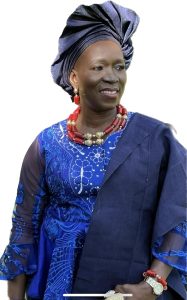
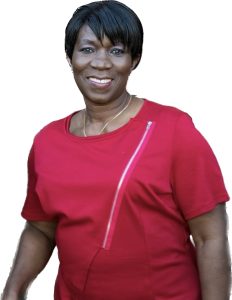
Agbonsuremi Augustine In Regina, Saskatchewan,
Canada,
April 2023
agbonsuremi@yahoo.com -
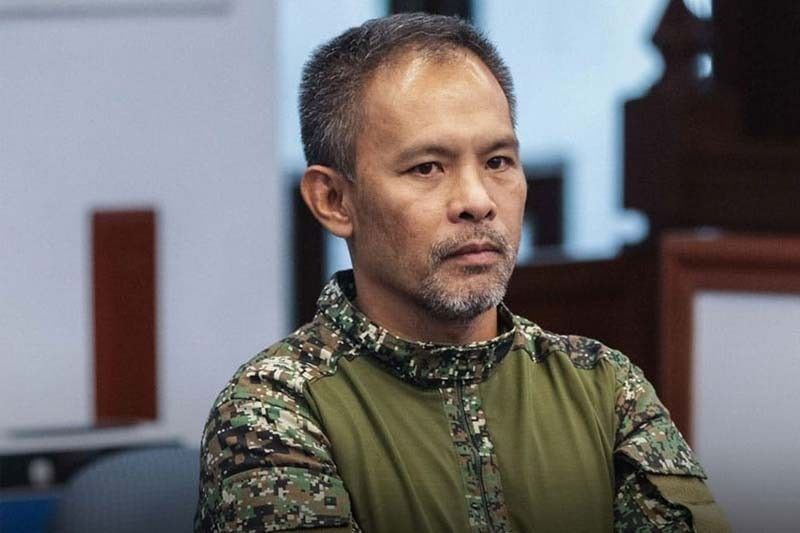
Former prisons chief charged with murder of famous journalist
The Philippine Department of Justice said it had indicted the former head of the Bureau of Corrections, Gerald Bantag, for allegedly “organising” the murder of Percival Mabasa, a prominent journalist.
Mabasa was better known in the country under the pseudonym Percy Lapid.
Bantag is charged with ordering the assassination of Mabasa after the latter left online comments that appeared to attribute bribery to the Bureau of Corrections head.
Moreover, Bantag is charged with ordering the assassination of prison inmate Cristito Palana Villamor, whom he allegedly used to give the order for the assassination of Mabasa to a killer.
“On the part of respondent Bantag, sufficient circumstantial pieces of evidence have been presented to establish that he masterminded the assassination (of Mabasa),” the justice department said on Tuesday, as reported by Philippine newspaper Malaya.
The authorities specified that ten other suspects in the case would also be charged with the murders of Mabasa and Villamor.
Those include Bantag’s former deputy, Ricardo Zulueta, and shooter Joel Escorial, who has already admitted to killing the journalist.
In October 2022, Mabasa, who had long been criticizing the country’s authorities, was shot dead outside his house in the city of Las Pinas.
Later that month, Villamor, the alleged middleman in the murder of the radio commentator, also died in prison under strange circumstances.
Shortly after, Bantag was suspended as the chief of the Bureau of Corrections and summoned to a court to give testimony.
Bantag has denied the allegations of ordering Mabasa and Villamor’s killings.
-
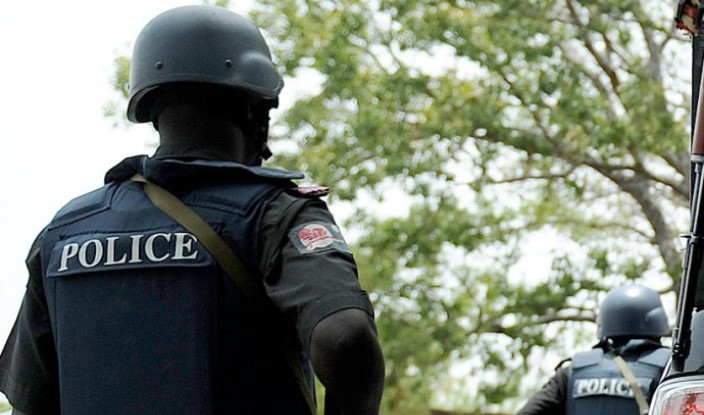
Police rescue kidnapped Ogun journalist after 45-minute gun battle
The police in Ogun rescued a journalist, Oluseun Oduneye, from his kidnappers after a gun battle which lasted for 45 minutes.
Oduneye, who’s the publisher of Issues Magazine, was kidnapped at Mobalufon area of Ijebu Ode on Thursday.
This is contained in a statement issued by SP Abimbola Oyeyemi, the State Police Public Relations Officer in Abeokuta on Monday.
”The journalist was riding in his Toyota Camry car when he was attacked at about 7.50 pm on his way to Ijebu-Ode from Abeokuta,” he said.
The police said the abductors later called his wife using the victim’s phone the following morning and demanded for N30 million as ransom.
Upon the report, Oyeyemi said that the Commissioner of Police, Frank Mba directed the Divisional Police Officer, Obalende Divisional Headquarters, Murphy Salami, whose jurisdiction the incident happened to ensure the safe rescue of the victim.
“In compliance with the CP’s directive, the DPO mobilised his detectives and embarked on technical and intelligence based investigation of the incident.
“Their efforts paid off when the Toyota Camry of the victim was traced to Idimu area of Lagos, where the kidnappers were hibernating waiting for the ransom.
“On sighting the policemen, the hoodlums engaged them in a shootout which lasted for about 45 minutes before they abandoned the car and took to their heels after sustaining varying degrees of gunshot injuries.
“Having realised that the game is over, the kidnappers were left with no alternative but to abandon the victim, and he was rescued unhurt,” he said.
Meanwhile, Mba, who commended his men for their gallantry and professional conduct appealed to members of the public especially hospitals and traditional healers to inform the police if anybody with gunshot injury was seen in their area.
The CP also warned criminals to steer clear off the state, saying that the command was battle ready to take the fight to their door step.
